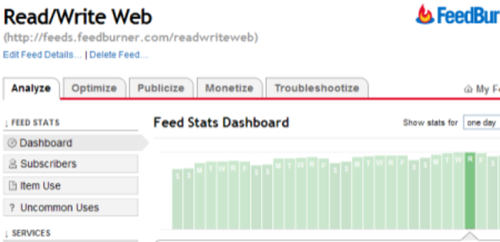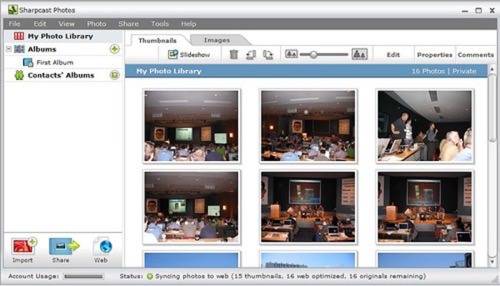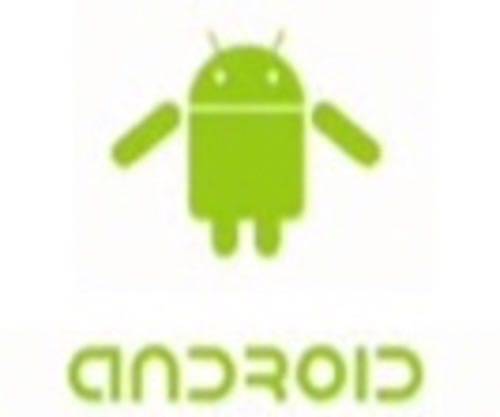Earlier this week, as part of our annual Year in Review series, we announced our Most Promising Company for 2012. It’s an honor bestowed on a startup that we think shows the most promise for the coming year. We chose appMobi this year because of its HTML-based mobile development platform, which is tapping into a potentially huge trend.

We’ve been doing Most Promising Company for 8 years now, starting with Feedburner way back in 2004. So we thought it’d be interesting to look back on the previous 7 years and find out which those companies lived up to their promise.
Most Promising of 2004: Feedburner
At the end of 2004, the first year that ReadWriteWeb chose a Most Promising Company, we selected RSS management startup Feedburner. Remember this was before the second wave of the Web kicked in, commonly called Web 2.0. At that time there was a lot of experimentation happening around RSS and blogging, but not a lot of money in the market. I described Feedburner back then as a startup “which burst onto the scene in 2004 with the one essential service that bloggers were missing – a way to track RSS statistics.”
Screenshot circa February 2006

It turned out I was right on the money with that pick. Two and a half years later, in June 2007, Feedburner was acquired by Google for about $100 million. What’s more, Feedburner founding CEO, Dick Costolo, is currently CEO of Twitter. I have fond memories of Costolo replying to my customer support emails all through 2004 – seemingly minutes after I emailed (and I lived in an odd timezone)! That dedication to customer support, probably rivaled only by Craig Newmark, I believe was a big part of Feedburner and Costolo’s success.
As at the end of 2011, Feedburner continues to chug along – although nowadays it’s a fairly boring infrastructure service for Google, rather than the hot tech it was back in 2004.
Most Promising of 2005: Memeorandum & Digg
At the end of 2005, Yahoo! was our Best BigCo. Yes, that’s how much times have changed. As Most Promising of 2005, I couldn’t decide between two new media services: Memeorandum (which later became Techmeme) and Digg. Both fit my description of the Web scene at the end of 2005: “There’s a real need for search services that can not only aggregate the vast amount of content on the Web – but effectively filter and organize that content based on individual preferences.”
Techmeme in 2011 is still a small company, but has consolidated its position as the leading tech news aggregator. Digg has had a rollercoaster ride over the years. It hasn’t yet fulfilled its potential, but there’s still time and it remains one of the leading social news services.
Most Promising of 2006: Sharpcast
The Consumer Cloud has been one of the biggest growth markets of 2011 and Sharpcast was one of the very earliest startups to tackle it. I wrote at the end of 2006 that Sharpcast “is solving a big problem (syncing data across Web, desktop and other devices) and also is an integral part of many different trends that will be popular in 2007 and beyond – mobile, rich media, a world of multiple devices, and more.”
Screenshot circa October 2006

I definitely got the trends spot on (the iPhone was announced just a couple of weeks after I wrote that; and I had no inside knowledge of what Steve Jobs was about to unveil!). Sharpcast is now known as SugarSync and its sync platform is one of the leading services in the Consumer Cloud market. It has admittedly been eclipsed by Dropbox, which launched later in 2007. But SugarSync is a well-respected and popular solution.
Most Promising of 2007: the open source movement
In 2007, we went on a different tack and named “the open source movement” as most promising. We defined this as “a loose-knit group that aims to make a huge impact by tying all Web companies together.” Examples included Mozilla’s Firefox web browser and Google’s Android Mobile OS, its open-source mobile operating system that was announced in November 2007.

The success of Android is the best example of how successful open source has been since 2007. Android is growing faster than iOS at this point and Google’s decision to make it open source has been well and truly vindicated. Through Android, Google now has a strong presence on many of the leading smartphones of 2011 (the iPhone obviously not included). Also the majority of today’s startups build on free or very inexpensive tools that are often open source, such as WordPress and MySQL.
It’s not all rosy for open source. Firefox has lost ground thanks to Google’s proprietary Chrome browser. Also the leading social network of this era, Facebook, is essentially a walled garden. But overall, open source has been a huge part of the Web over the past few years.
Most Promising of 2008: Brightkite
In 2008, location data became an emerging trend. One of the early companies to introduce the concept of “check-ins” was Brightkite. Foursquare later popularized this, but Foursquare wasn’t founded until 2009. Brightkite had the opportunity to dominate this emerging market and perhaps even become a fully blown mobile social network.
Brightkite circa October 2008

Unfortunately for Brightkite, it failed to take advantage of its first-mover advantage. However I think the choice was the right one at the time, because Foursquare went on to prove that mobile check-ins was a big market. Brightkite was eventually acquired in April 2009 by another mobile social network, Limbo.
Most Promising of 2009: Aardvark
Aardvark was the first of a new generation of Q&A services that tapped into the Social Web. It was acquired by Google for $50 million in February 2010, so it certainly lived up to its promise for the site’s founders and investors. For users, however, Aardvark eventually slipped into oblivion. It was shuttered by Google in September 2011.

Aardvark was a very clever service. You could ask Aardvark any question, and it would attempt to find a person in your extended social circle who knew about that topic and was available to answer at that moment. It’s a shame Google shut it down. Nowadays, Quora is the leading Q&A service.
Most Promising of 2010: SimpleGeo
Last year we chose a geolocation company called SimpleGeo as our Most Promising. Location was a big trend of 2010, with Foursquare, Facebook, Google and others having developed successful products using location data. The idea behind SimpleGeo was to be a platform for others to utilize location data.
SimpleGeo was acquired at the end of October this year by mobile services company UrbanAirship. It didn’t really live up to its promise.
Conclusion
Four of our picks ended up being acquired, the most successful of which was Feedburner. Two, Brightkite and Aardvark, were acquired before they really proved themselves. Foursquare picked up where Brightkite left off and ultimately became a huge success. Quora took the mantle of leading Q&A service from Aardvark, although it remains a niche market. As for SimpleGeo, it simply couldn’t find a viable market.
Another three of our picks continue to plug away as independent companies: Techmeme, Digg and Sharpcast.
Looking back on these picks, I believe we got the trends right on – and before they became popular. Most of the companies we picked either got a great acquisition outcome or they continue to be leaders in their field. Alas, we didn’t pick any startups that went on to become BigCos – like a Facebook back in 2004 or a Twitter in 2006. But that’s half the fun of making these predictions, to see if you can pick a future success story while they are very early stage.
Think you can do better? Give us your pick for Most Promising for 2012. We chose appMobi, how about you?










